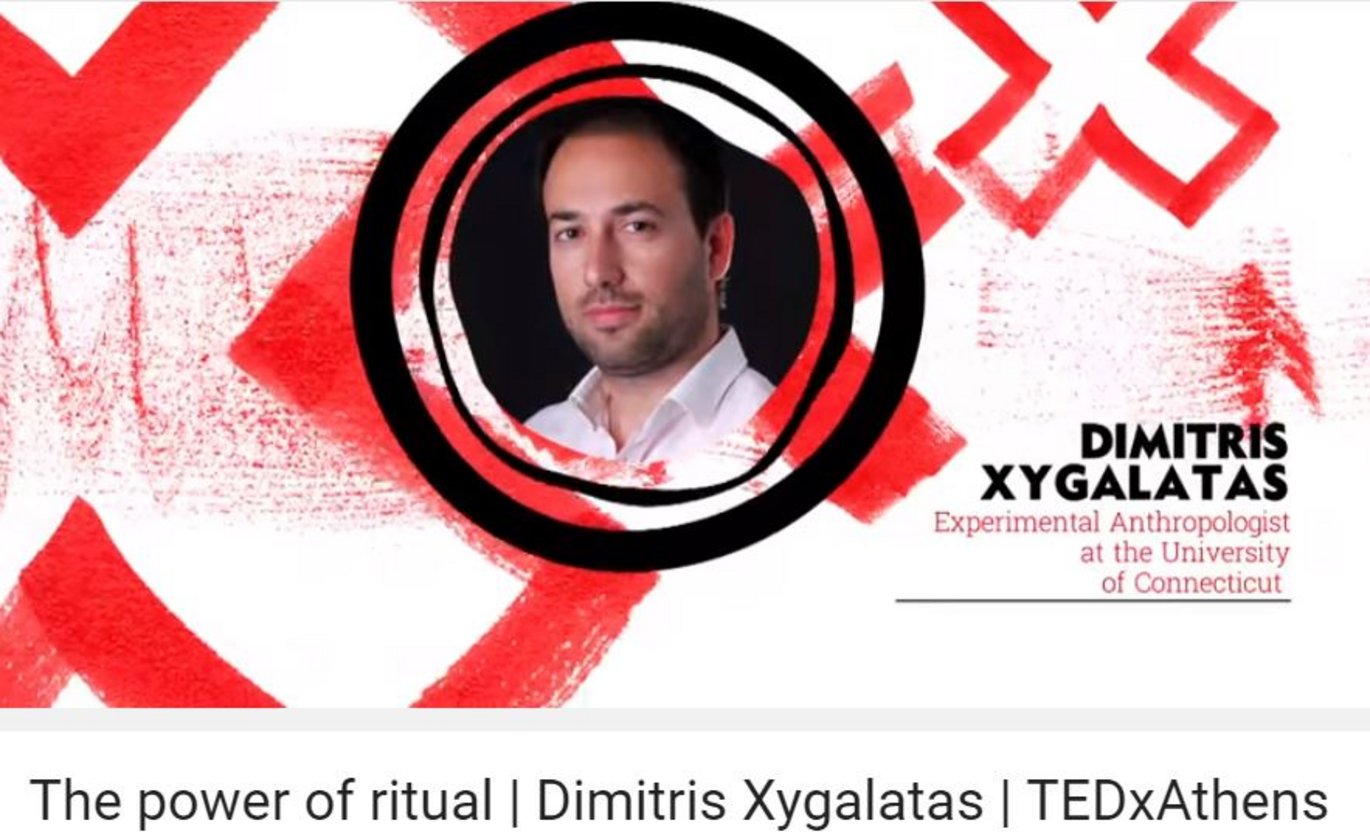The power of TEDx
Dimitris Xygalatas did his first TEDx Talk a few days ago. Read about his experience and some good advice if you're considering doing a TED Talk

Was this your first TED Talk?
Yes. I had been watching TED talks fanatically since I was a student, but it was the first time I gave one.
What do you think was the most interesting thing about doing this Talk?
I was really amazed at the scope and organization of the whole event. TEDxAthens is one of the world’s largest TED gatherings. It involved a massive audience, live transmission on the web, at schools around the city, and giant screens on the street, and a host of cultural happenings surrounding the main event.
Greece is my home country, and has been struggling with a major financial crisis for years now. Education and the arts and sciences have been hit very hard by the austerity measures. So seeing the team of 200 organizers, technicians, and stewards, who all worked voluntarily for months to make this happen, as well as the tremendous interest that the event generated, was a really encouraging sign of resilience in the face of adversity for my country.
Did you contact TED Talk – og how did you get the opportunity to do the Talk?
They contacted me. A previous TED speaker had seen me give a talk at a conference and recommended me to the organizers.
Best advice for other researchers?
Don’t think of your work as something meant to be read only by your colleagues. It is part of our mission as academics to share our results with the general public, who are usually the ones paying for our research through their taxes.
How did you prepare for the talk?
In some ways it is similar to speaking at an academic conference. The audience at a TED event is educated, intelligent, and thirsty for knowledge. At the same time, however, you need to keep in mind that not all parts of your research are as interesting or useful to others as they might seem to you. Luckily, my work is interdisciplinary, so I have often been invited to speak to audiences of smart people who were not experts in my own field, and that really helped me get a sense of how to frame an academic talk for non-geeks.
How did people respond to it?
I got a great response. Many people wrote to me after attending the talk or watching the video stream. But of course, I am assuming that those who didn’t like it would not write just to tell me how much they hated it – unless they were academics, that is!
Any other advice for researchers who are considering doing a TED Talk?
Try pitching the idea to people who know nothing about your topic, from colleagues in other departments to your cousin or your friends at the bar. This will force you to explain these ideas better (which will also come in handy when you are teaching them to your students), as well as to gauge whether they are truly interesting.



